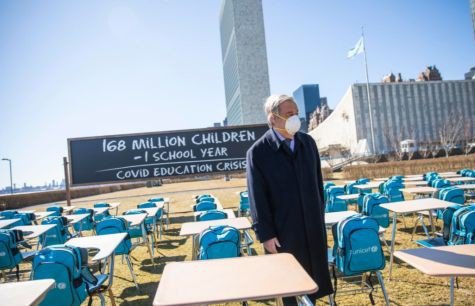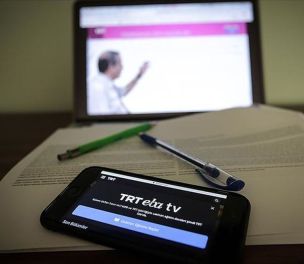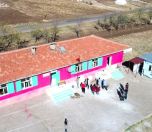* Photos: UNICEF
Click to read the article in Turkish
The United Nations Children's Fund (UNICEF) has released a written statement and raised concerns that schools for more than 168 million children globally have been completely closed for almost a full year due to the novel coronavirus (COVID-19) lockdowns.
Around 214 million children globally – or one out of every 7 students – have also missed more than three-quarters of their in-person learning.
This recent analysis on school closures has noted that 14 countries worldwide have remained largely closed since March 2020 to February.
Two-thirds of those countries are in Latin America and the Caribbean, affecting nearly 98 million schoolchildren. Of the 14 countries, Panama has kept schools closed for the most days. Panama is followed by El Salvador, Bangladesh, and Bolivia in that regard.
'Cut off from critical elements of childhood'
Further in its statement, UNICEF has noted that school closures have devastating consequences for children's learning and wellbeing.
The most vulnerable children and those unable to access remote learning are at an increased risk of never returning to the classroom, and even being forced into child marriage or child labor, says UNICEF.

* UN Secretary General Antonio Guterres
According to the latest data shared by UNESCO, another UN agency, more than 888 million children worldwide continue to face disruptions to their education due to full and partial school closures.
"The majority of schoolchildren worldwide rely on their schools as a place where they can interact with their peers, seek support, access health and immunization services and a nutritious meal. The longer schools remain closed, the longer children are cut off from these critical elements of childhood," UNICEF has underlined further.
'A catastrophic education emergency'
Henrietta Fore, the Executive Director of UNICEF, has also said:
"As we approach the one-year mark of the COVID-19 pandemic, we are again reminded of the catastrophic education emergency worldwide lockdowns have created. With every day that goes by, children unable to access in-person schooling fall further and further behind, with the most marginalized paying the heaviest price.
"We cannot afford to move into year two of limited or even no in-school learning for these children. No effort should be spared to keep schools open, or prioritise them in reopening plans." (AÖ/SD)








